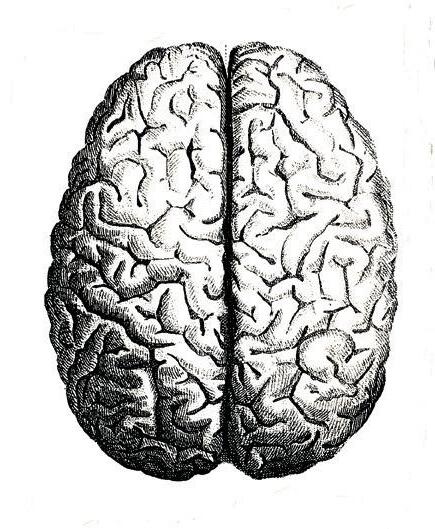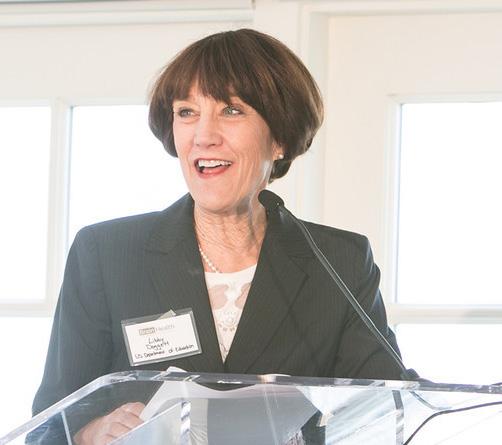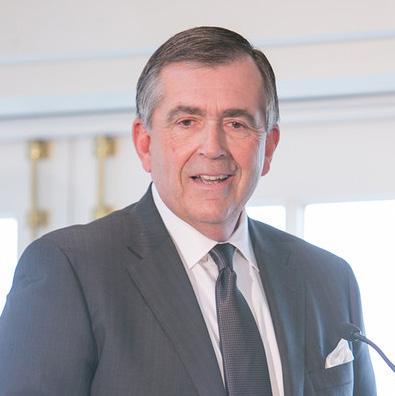The Human Brain: Resilience and Regeneration

On April 28, 2014, the Center for BrainHealth hosted its inaugural Brain Health Summit titled, The Human Brain: Resilience and Regeneration, in Washington, DC. More than 150 public policy experts, think tank scholars, educators, and Congressional staff members gathered to focus on innovative research advances, awareness efforts, and practical applications to promote brain health fitness.
Featured speakers included Senator Chuck Grassley (R-IA), Congressman Chaka Fattah (D-PA), and U.S. Department of Education Deputy Assistant Secretary for Policy and Early Leaning Libby Doggett. Other participants represented some of the nation’s leading organizations and institutions, such as the Defense Advanced Research Projects Agency (DARPA), National Institute on Aging, McKnight Brain Research Foundation, AARP, Kaplan Learning and Innovation, National Public Radio (NPR), and more.

“Advances in biomedical research and brain imaging techniques are moving at lightening speed,” said Dr. Sandra Bond Chapman, founder and chief director of the Center for BrainHealth. “This profound progress is helping to reveal ways to augment the brain’s immense resilience and inherent capacity to regenerate neural systems to support cognitive brain health throughout our lifespan. What used to seem improbable is now in the realm of reality.”
The summit focused on three major areas: education, healthy aging, and traumatic brain injury. Panel discussions and keynote presentations highlighted innovative research advances, awareness efforts, and practical application to promote brain health fitness for individuals of all ages and stages including students, adults, athletes, and military service members.
Education panelist Dr. John Gabrieli, Director of the Athinoula A. Martinos Imaging Center at the McGovern
Institute at MIT and Co-Director of the MIT Clinical Research Center said, “The Brain Health Summit was inspiring; a broad community of scientists and citizens discussed promising ways to translate cutting-edge knowledge into practices and policies that promote education, optimal aging, and resilience from head trauma. The informal and frank discussions explicated both the importance of challenges in making advances in these areas, as well as the excitement for the possibility to make progress on matters that touch so many people.”

As the growing national conversation surrounding Alzheimer’s, sports concussions, and the invisible injuries of war grows, providing up-to-date information about proactive approaches to improving brain performance is key to maximizing overall health in the United States.

“The inaugural brain health summit was important in the journey to educate the public, health professionals, and educators about the importance of brain health as a component of each individual’s health maintenance,” said Dr. Lee Dockery of the McKnight Brain Research Foundation and Healthy Aging panelist. “One of the main health concerns as one passes through each decade in the aging process is brain health and the maintenance of cognitive function. With research leading to understanding of diseases of the brain influencing cognitive decline and memory loss, the maximum potential of brain health at each stage of life can be achieved individually and collectively.”
Our Nation’s Brain Health
Impaired brain function from illness or injury can affect anyone, at any age. Until recently the brain was thought to be static and unchangeable. But science is showing us that the body’s most important organ is not static after all. In fact, throughout our entire lives, our brains continue to manufacture new cells, grow, change and repair themselves, and form complex connections.
The implications of these discoveries are immensely hopeful for those living with cognitive impairment: people can recover brain function to some degree after traumatic injury; cognitive decline due to aging can be slowed; and social brain networks can be improved.

In healthy children and adults, there is much more we can do to maximize the brain’s thinking capacity and to ward off low achievement and cognitive decline. We know that students can learn higher-order critical reasoning
skills in adolescence that will help them academically in high school, college, and life. And simple changes in a person’s focus while thinking – such as avoiding multi-tasking, grasping the big picture, and embracing the unknown – can improve cognitive performance among older adults.
Despite all the promising new research, advances in brain science have not gotten the attention they deserve from policy makers and the public. Fortunately, that is beginning to change.
In an important step, President Obama proposes to double federal funding for

his Brain Research through Advancing Innovative Neurotechnologies (BRAIN) Initiative. The President has described the initiative as “giving scientists the tools they need to get a dynamic picture of the brain in action and better understand how we think and how we learn and how we remember.” The initiative directs several federal agencies to make use of new technologies to map the brain’s structure and processes used in thinking and memory, with the goal of better preventing, diagnosing and treating brain impairments.
This effort comes at a critical time as our nation faces unprecedented cognitive health challenges. One in 68 children is on the autism spectrum. Two out of three graduating seniors are unprepared for college. Traumatic brain injuries have increased 182 percent among our troops in the last decade. And one in nine people age 65 and older (an estimated 5 million older Americans) have Alzheimer’s disease.

To achieve better brain health nationwide, a few things are essential. We need to propel the creation of public-private partnerships to tackle and invigorate the most important and looming public health question – our brain’s health. We need to work together to accurately assess the safety and efficacy of certain treatments to better serve patients suffering from cognitive disorders. We need to transform awareness to incentivize people to adopt healthy brain habits. And we must generate new knowledge of the brain at all system levels to yield new treatments to build resilience or regenerate brain function.
Better brain health for all Americans is an ambitious goal, yes, but we can achieve it. We cannot afford not to. We are discovering that the human brain has a seemingly limitless ability to adapt, recover, and overcome. Let’s keep working to apply what we have learned to enhance brain health for all.


Brain Health News from Around the World
Thesafety,preservationandimprovementofthehumanbrainhaverisen tothetopofournationaldiscourse.TheCenterforBrainHealthlaunched BrainHealthDaily.comtoprovideagatewaytocurated,scientificallyrelevant newsandopiniononthebrainfromaroundtheworld.Youwillhaveaccess tothelatestonbrainhealth,braininjury,andbraindisease.Signuptodayat BrainHealthDaily.comtohavethelatestbrainhealthnewsfromaroundthe globedeliveredtoyourinboxdaily.

Special Summit Edition
SUMMIT ATTENDEES 214.905.3007 CenterForBrainHealth.org Non-Profit U.S. Postage Paid Richardson, TX 75080 Permit No. 108 2200 West Mockingbird Lane Dallas, Texas 75235 I con of B ra I n H ealt H a ward r ec I p I ent 2014
T hrough all stages of life, Americans can do much more to protect and enhance the health of their brains.
Presented to Gen. Chiarelli, U.S. Army (Ret.) at the Brain Health Summit for his dedication to advancing collaborative research to improve brain health.
“ ...throughout our entire lives, our brains continue to grow, change and repair themselves...”
Dr. Jim Kelly (Director of the National Intrepid Center of Excellence), Dr. Sandra Chapman, & Dr. Victor Fishman
Rep. Eddie Bemice Johnson and Rep. Roger Williams
Daryl Johnston and Morgan Luttrell
Comm. Jim McClain, US Air Force











